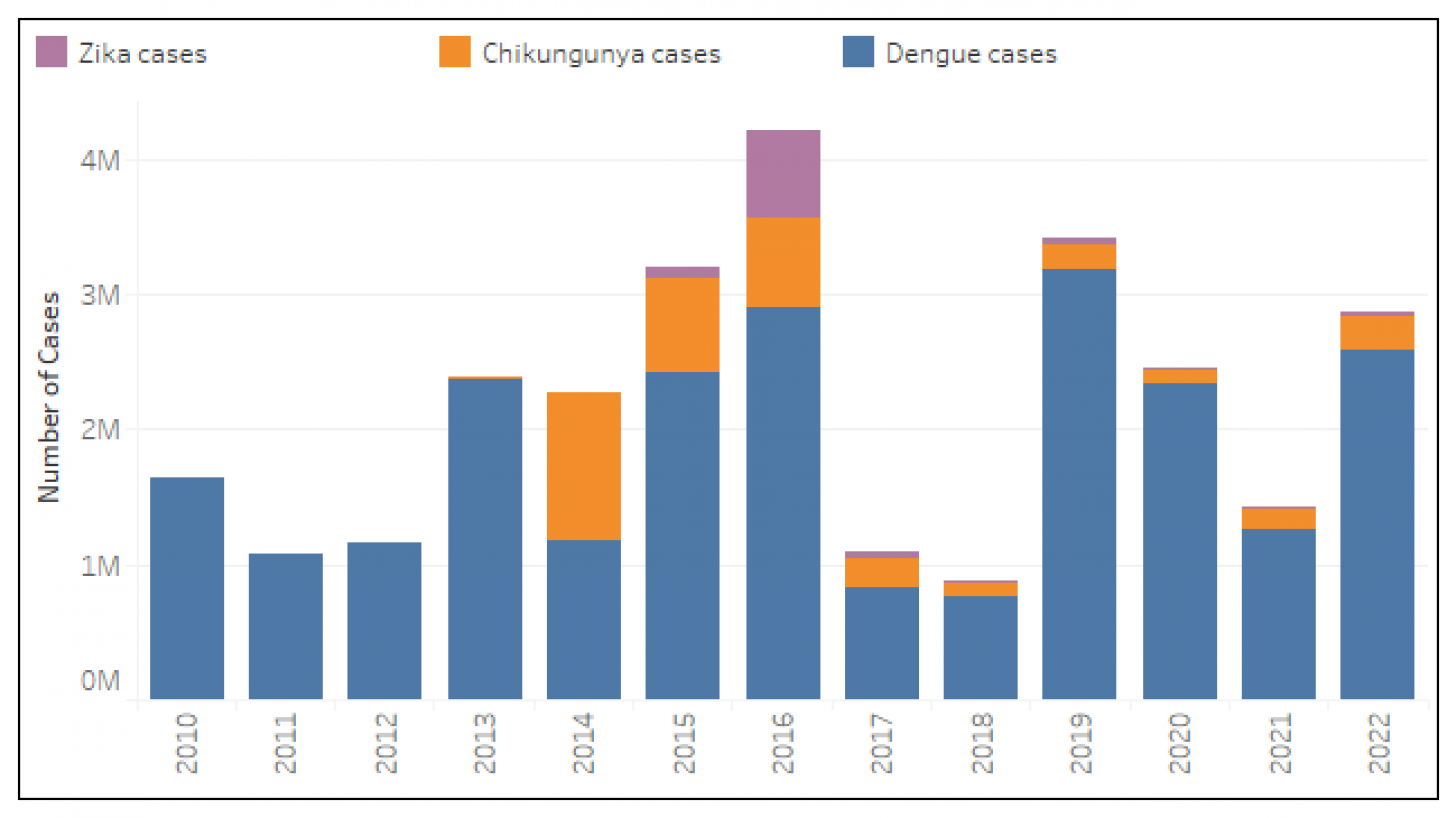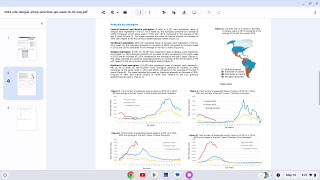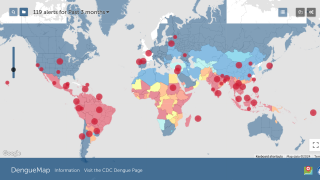2.7 Million Arboviral Disease Cases Confirmed in the Americas

A small group of arboviruses stays mainly out of the news, but their thirteen-year circulation pattern is very newsworthy.
In the Region of the Americas, a total of 2,780,947 cases of arboviral disease have been reported so far this year.
As of week #40, new data indicates there has been a 95% relative increase in arboviral cases compared to 2021.
The Pan American Health Organization (PAHO) weekly report issued on December 14, 2022, shows that while the introduction of chikungunya in 2013 and Zika in 2015 have made modest impacts each year, the continued circulation of the dengue virus has predominated.
Of those mosquito-borne viruses, 89.9 % were dengue cases, 9% were chikungunya cases, and 1.1% were Zika cases.
It is worth noting that in 2022, Dengue peaked in week #17, whereas chikungunya peaked later.
And for the same time period in 2021, Zika circulation was more robust in the first semester of 2022.
However, its circulation pattern is less understood, as many countries do not notify the PAHO about Zika cases.
Besides a few Zika cases in Puerto Rico, most of the U.S. no longer confirms cases.
On the other hand, Dengue has a measurable health risk for about 4 billion people, says the U.S. Centers for Disease Control and Prevention (CDC). In addition, Dengue is often a leading cause of illness in outbreak areas.
Especially in the state of Florida during 2022.
Florida's Health Department reported as of December 10, 2022, there have been 55 cases of locally-acquired Dengue this year.
And 754 travel-associated dengue cases.
While Zika and chikungunya vaccine candidates remain in clinical studies, two dengue vaccines are authorized in various countries.
In the U.S., the Dengvaxia® vaccine is offered under unique situations. For example, the vaccine is not approved for use in U.S. travelers visiting but not living in an area where dengue is common.
Dengue is caused by one of any of four related viruses: Dengue virus 1, 2, 3, and 4.
For this reason, a person can be infected with a dengue virus as many as four times in their lifetime, says the CDC.
The CDC's travel advice when visiting countries or states confronting mosquito-borne viruses focuses on two tactics, avoiding bites and being vaccinated.
PrecisionVaccinations publishes fact-checked, research-based vaccine information manually curated for mobile readers.
Our Trust Standards: Medical Advisory Committee
























